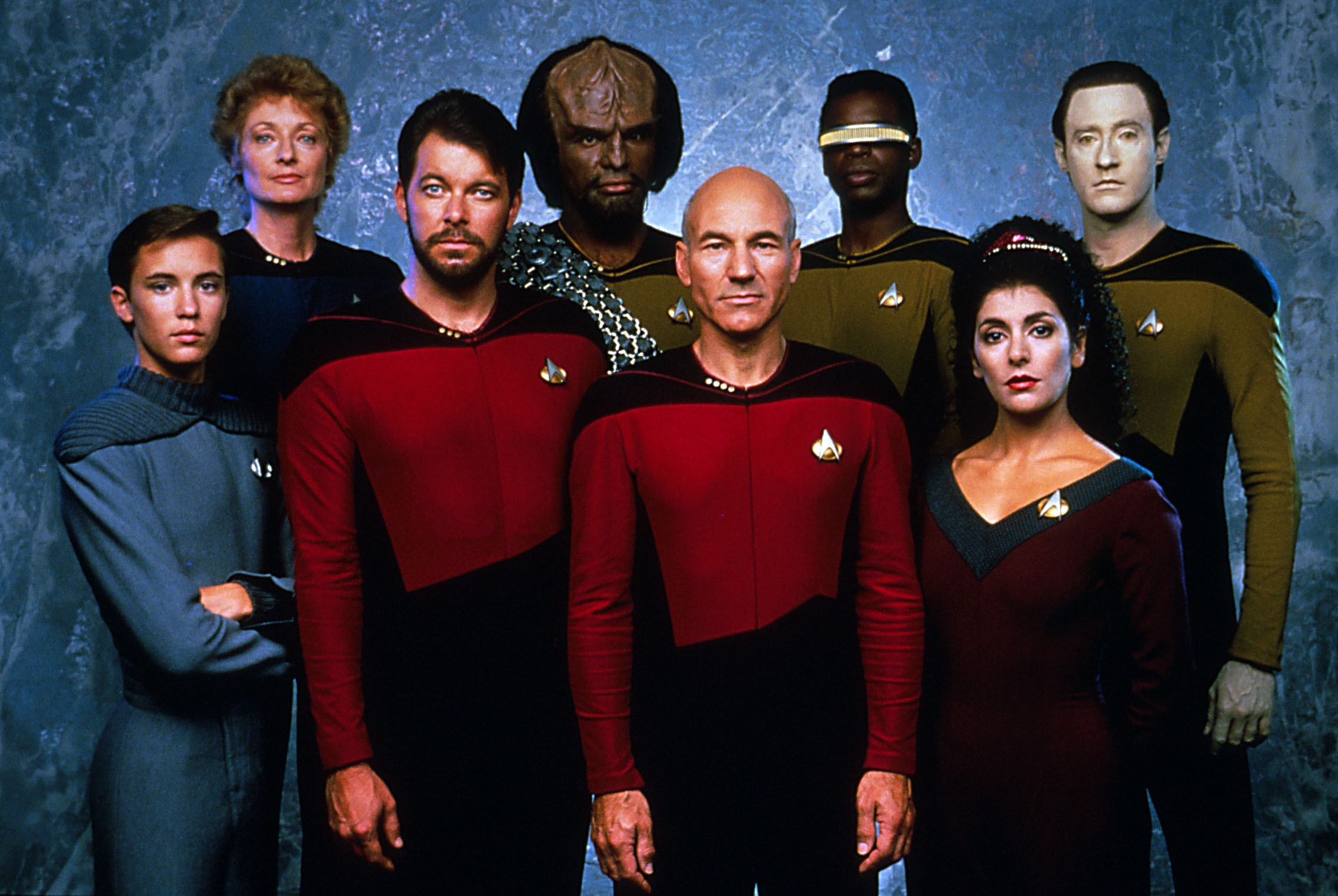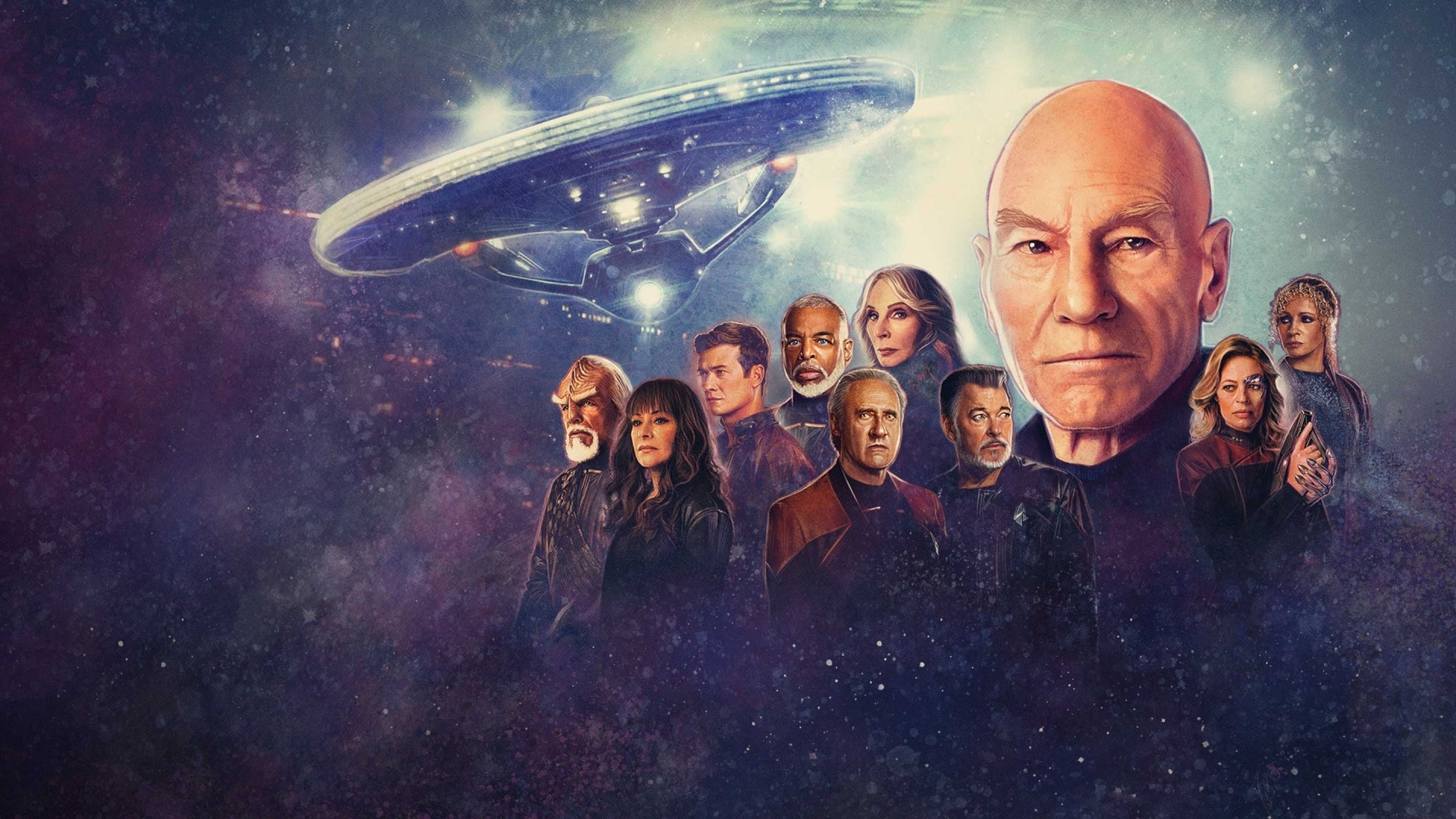Exploring The World Of 'Star Trek': A Deep Dive & More!
Ever wondered about the enduring legacy of a science fiction phenomenon? Star Trek's influence transcends mere entertainment; it's a cultural touchstone that continues to shape our understanding of the future.
From its humble beginnings in the mid-1960s to its current status as a sprawling multimedia empire, Star Trek has consistently pushed the boundaries of storytelling and visual effects. Gene Roddenberry's vision of a hopeful, united future resonated with audiences then and continues to inspire generations today. The original series, debuting on CTV in Canada on September 6, 1966, and then on NBC in America on September 8, 1966, quickly became a landmark television event. While initially titled simply "Star Trek," it later adopted the retronym "Star Trek: The Original Series" to distinguish it within the ever-expanding franchise.
Star Trek's longevity is no accident. The show's core themes of exploration, diplomacy, and the potential for human betterment have remained remarkably consistent across its various iterations. Whether it's the voyages of the starship Enterprise under the command of Captain Kirk, the deep space missions of Captain Picard, or the more recent adventures in "Star Trek: Discovery" and "Star Trek: Strange New Worlds," the franchise consistently invites viewers to imagine a future where humanity has overcome its differences and embraced the challenge of exploring the unknown.
- Aditi Mistry Find The Real Deal Not Just No Results
- Aditi Mistry Why No Results The Truth What You Can Find
The universe of Star Trek is vast and ever-expanding. The main timeline, as it's commonly understood, begins in 2151 with the launch of the NX-01 Enterprise, the first warp-capable vessel built by humans. From there, the timeline stretches over a millennium, reaching 3190 in the upcoming season 5 of "Star Trek: Discovery." This immense scope allows for a rich tapestry of stories, characters, and technological advancements.
The franchise's commitment to visual innovation is also a key factor in its success. From the groundbreaking special effects of the original series to the stunning CGI of modern Star Trek productions, the visuals have consistently enhanced the storytelling and transported viewers to believable alien worlds. This is particularly evident in the various Star Trek games, such as "Star Trek Online," which boasts over 600 customizable ships from across the franchise's history, allowing players to create their own unique Starfleet experience.
In addition to the core television series and films, Star Trek has spawned a vast array of spin-offs, books, comics, and other media. This expansive universe allows fans to delve deeper into the stories and characters they love, exploring different facets of the Star Trek world and expanding their understanding of its complex lore.
- Aditi Mistry Viral Videos More What You Need To Know
- Aditi Mistry From Search Fails To Insta Fame More
One of the most exciting developments in recent years has been the revival of Star Trek on streaming services. "Star Trek: Discovery" and "Star Trek: Strange New Worlds," both available on Paramount+, have introduced new audiences to the franchise while simultaneously appealing to long-time fans. These series have embraced modern storytelling techniques and visual effects while remaining true to the spirit of Gene Roddenberry's original vision. Seasons 2 and 3 of some series are also available on the Pluto TV "Star Trek" channel in Switzerland, Germany, and Austria, making the franchise more accessible than ever.
The actors who have portrayed Star Trek's iconic characters have also played a significant role in the franchise's success. From William Shatner's commanding portrayal of Captain Kirk to Patrick Stewart's thoughtful depiction of Captain Picard, the actors have brought depth, nuance, and humanity to their roles. The recent casting of Naveen Andrews and Wrenn Schmidt in Star Trek underscores the franchise's commitment to attracting top talent and delivering compelling performances.
Moreover, Star Trek has demonstrated a remarkable ability to adapt to changing social and political landscapes. The original series, for example, broke ground by featuring a diverse cast, including a Black woman (Nichelle Nichols as Uhura) and an Asian man (George Takei as Sulu), at a time when such representation was rare on television. Subsequent Star Trek series have continued to explore issues of race, gender, sexuality, and social justice, reflecting the evolving values of society and promoting a message of inclusivity and tolerance.
The enduring appeal of Star Trek also lies in its ability to spark the imagination and inspire technological innovation. The show's depiction of advanced technologies, such as communicators, medical tricorders, and warp drive, has often foreshadowed real-world advancements. Many scientists and engineers have cited Star Trek as an inspiration for their work, demonstrating the power of science fiction to shape the future.
For fans looking to immerse themselves in the Star Trek universe, there are numerous resources available online. Websites like TrekCore.com offer extensive multimedia content, including high-resolution DVD screencaps, gaming sections, reviews, downloads, and more. These resources provide a wealth of information and entertainment for both casual viewers and dedicated Trekkies. It's important to note that TrekCore.com is not endorsed, sponsored, or affiliated with Paramount, CBS Studios, or the Star Trek franchise. All Star Trek images, trademarks, and logos are owned by CBS Studios Inc.
In the ever-changing landscape of entertainment, Star Trek has remained a constant source of inspiration, innovation, and hope. Its enduring popularity is a testament to the power of storytelling to connect us, challenge us, and inspire us to imagine a better future. Whether you're a long-time fan or a newcomer to the franchise, there's always something new to discover in the vast and captivating universe of Star Trek.
While some might find themselves searching in vain for definitive answers or hidden truths within the franchise, the real treasure lies in the journey itself the exploration of new worlds, the encounter with diverse cultures, and the unwavering belief in the potential of humanity. In a world often marked by conflict and division, Star Trek offers a vision of unity, cooperation, and the pursuit of knowledge. It's a message that resonates as powerfully today as it did over five decades ago.
May 7, 2025, looms on the horizon for fans eagerly awaiting the next chapter. The "All Access Star Trek podcast, discovery," continues to fuel discussions and anticipation. As Star Trek continues to evolve, its core message of hope and exploration will undoubtedly continue to inspire and captivate audiences around the world.
Even beyond the official releases, the spirit of Star Trek finds expression in unexpected places. For example, the latest posts from @ifsaturktrt, while seemingly unrelated, reflect a similar desire to connect with others and share experiences. The photo by Austin Distel on Unsplash, though not directly tied to Star Trek, captures the sense of wonder and exploration that defines the franchise.
And just as one might use a "twitter viewer" to access information without a formal account, Star Trek offers multiple points of entry for fans of all levels. The franchise's vastness might seem daunting at first, but there's no single "right" way to experience it. Whether you prefer the classic adventures of the original series, the philosophical depth of "Star Trek: The Next Generation," or the action-packed narratives of the newer series, there's a Star Trek for everyone.
In a separate vein, the reference to Turkish pop music duo Deniz Seki and Ozan Doulu collaborating on "nsan Lekesi" ("Human Stain") highlights the universal appeal of artistic expression. Just as Star Trek explores the human condition through the lens of science fiction, music provides another avenue for exploring emotions, experiences, and social commentary. Deniz Seki's life experiences serve as inspiration for the song, with lyrics and music by Sadettin Dayolu. Similarly, the ease of accessing "radyo slow trk mobil" via smartphones (iOS or Android) underscores the accessibility of entertainment and information in the modern world.
Like the evolution of media consumption, from terrestrial broadcasting to internet streaming and mobile apps, Star Trek has adapted to the changing times while remaining true to its core values. It's a testament to the power of a compelling story and the enduring appeal of a hopeful vision for the future.
As with any franchise, there may be times when fans encounter searches that yield no results or require clarification of spelling. But even in those moments, the spirit of exploration and discovery that defines Star Trek remains. The franchise encourages us to keep searching, keep questioning, and keep imagining a better future.
| Attribute | Details |
|---|---|
| Franchise Name | Star Trek |
| Creator | Gene Roddenberry |
| First Episode Air Date | September 6, 1966 (Canada) / September 8, 1966 (USA) |
| Genre | Science Fiction |
| Main Themes | Exploration, Diplomacy, Human Potential, Inclusivity |
| Timeline Start | 2151 (with Star Trek: Enterprise) |
| Current Timeline End | 3190 (Star Trek: Discovery Season 5) |
| Number of TV Series | 11 (as of 2024) |
| Key TV Series | Star Trek: The Original Series, Star Trek: The Next Generation, Star Trek: Deep Space Nine, Star Trek: Voyager, Star Trek: Enterprise, Star Trek: Discovery, Star Trek: Picard, Star Trek: Strange New Worlds |
| Key Films | Star Trek: The Motion Picture, Star Trek II: The Wrath of Khan, Star Trek IV: The Voyage Home, Star Trek (2009), Star Trek Into Darkness, Star Trek Beyond |
| Notable Actors | William Shatner, Leonard Nimoy, Patrick Stewart, Avery Brooks, Kate Mulgrew, Scott Bakula, Sonequa Martin-Green, Anson Mount |
| Streaming Platforms | Paramount+, Pluto TV (selected seasons/regions) |
| Gaming | Star Trek Online (MMORPG), Numerous other games across various platforms |
| Multimedia Resources | TrekCore.com (unofficial resource), Official Star Trek website |
| Official Website | StarTrek.com |
Article Recommendations
- Aditi Mistry Viral Video Leak See The Truth Behind The Claims
- Explore Fitness Trends Tips Viral Workouts



Detail Author:
- Name : Mandy Gottlieb
- Username : amparo.adams
- Email : hank47@gmail.com
- Birthdate : 1978-06-24
- Address : 6757 Camilla Mountains Hellerfurt, ID 68311-3165
- Phone : +1.706.830.7843
- Company : Upton Inc
- Job : Traffic Technician
- Bio : Non ut qui iste occaecati ab. Velit illo voluptatem id illum eligendi eum excepturi. Ea dignissimos ut est maxime. Ea nihil dolore dolores mollitia itaque.
Socials
tiktok:
- url : https://tiktok.com/@kendrick.bednar
- username : kendrick.bednar
- bio : Sit in adipisci ea provident enim qui consectetur earum.
- followers : 3714
- following : 61
instagram:
- url : https://instagram.com/kendrick_real
- username : kendrick_real
- bio : Impedit id fuga non ea. Aliquid consequatur qui eos quo dolor sit. Aut veniam velit consequatur in.
- followers : 5182
- following : 650
facebook:
- url : https://facebook.com/kendrickbednar
- username : kendrickbednar
- bio : Dolorum dolorem aut fuga excepturi. Quam quis alias eius earum.
- followers : 1510
- following : 2370
twitter:
- url : https://twitter.com/kendrick6342
- username : kendrick6342
- bio : Quasi ducimus nihil sapiente aut quisquam. Voluptate aut non quia quia quaerat mollitia. Et minima tempora necessitatibus ratione repellendus.
- followers : 1232
- following : 2897
linkedin:
- url : https://linkedin.com/in/kendrick.bednar
- username : kendrick.bednar
- bio : Aliquid laborum est ea minus magnam.
- followers : 1707
- following : 2354